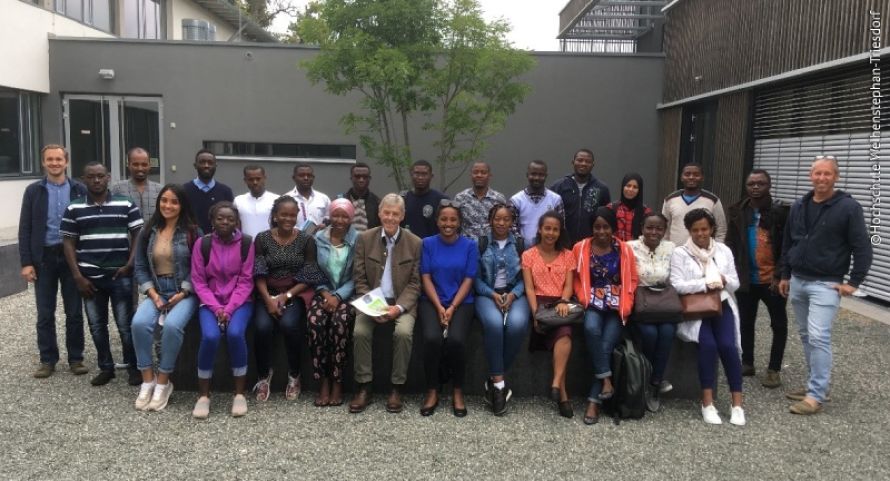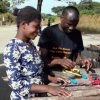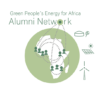Better value chains in African agriculture

Course participants of the current Postgraduate Training Course “Food Chains in Agriculture” together with Dr. Bernd Müller, Coordinator of the Postgraduate Training Course Food Chains in Agriculture (left), Josef Göppel, Energy Commissioner of the BMZ for Africa (middle) and Professor Dr. Ralf Schlauderer, Head of HSWT International School (right)
The postgraduate course is part of the training pact with Africa, in which several universities in African countries have joined forces with HSWT. The postgraduate course is part of GIZ support to the cooperation framework for the Global Project Green Innovation Centres in the Agro-Food Sector (GIAE), financed by the German Federal Ministry for Economic Cooperation and Development (BMZ). The network currently consists of seven partners, whose numbers are constantly expanding.
Josef Göppel, the BMZ’s Energy Commissioner for Africa and Ambassador for the Ministerial Initiative Green People’s Energy for Africa (GBE), has now met the current 27 participants of the postgraduate course from Ethiopia, Benin, Burkina Faso, Côte d’Ivoire, Kenya, Mali, Nigeria, Togo and Tunisia several times to discuss their project ideas for strengthening rural value chains. The participants came to Germany at the beginning of July to complete the practical part of the course and to present their study projects. Of the 27 participants, 10 have already developed locally adapted activities during their stay in Germany.
While in Germany, the African postgraduates completed a diverse programme with a focus on practical orientation. The excursion programme included study tours to various vegetable farms, conventional and organic farms in the region, food processing companies, renewable energy companies, and observation of the construction of a small biogas plant.
In the last week of the course, the participants presented the study projects they had worked on individually, before putting them into practice in their home countries. One example of these study projects focuses on the production of briquettes from coffee husks to economically empower rural women in Ethiopia and to support the introduction of solar cooling chambers to reduce post-harvest losses of tomatoes in Kenya’s Machakos district. As in 2019, the Baywa Foundation awarded prizes to the six best study projects.
After returning to their home countries, the course graduates, together with German institutions for international development cooperation, are looking for opportunities to put their project proposals into practice. The BayWa Foundation is supporting the best participants with financial rewards.





